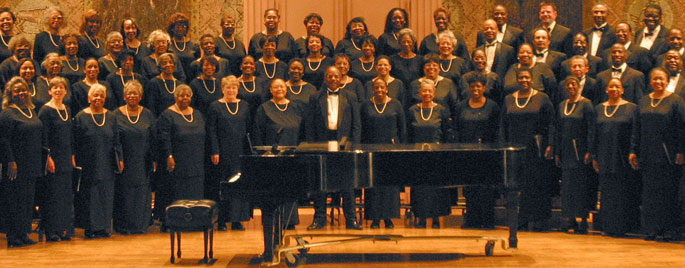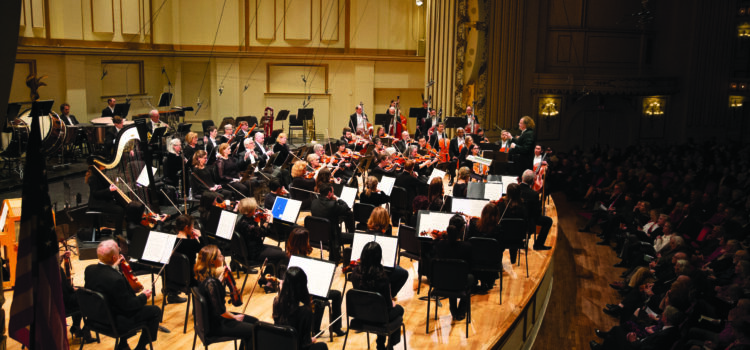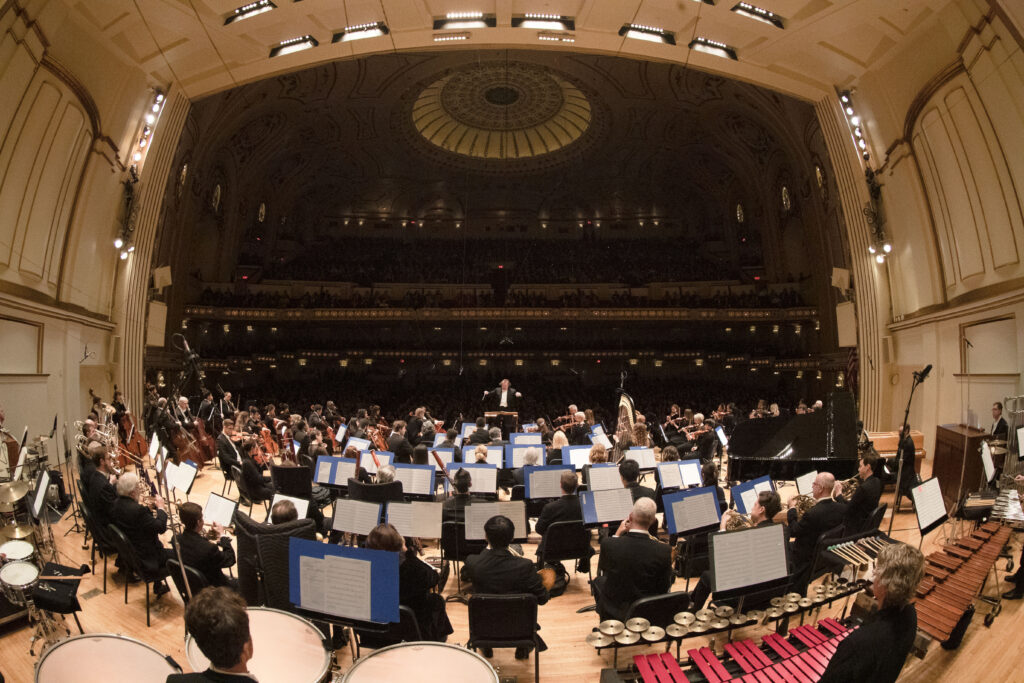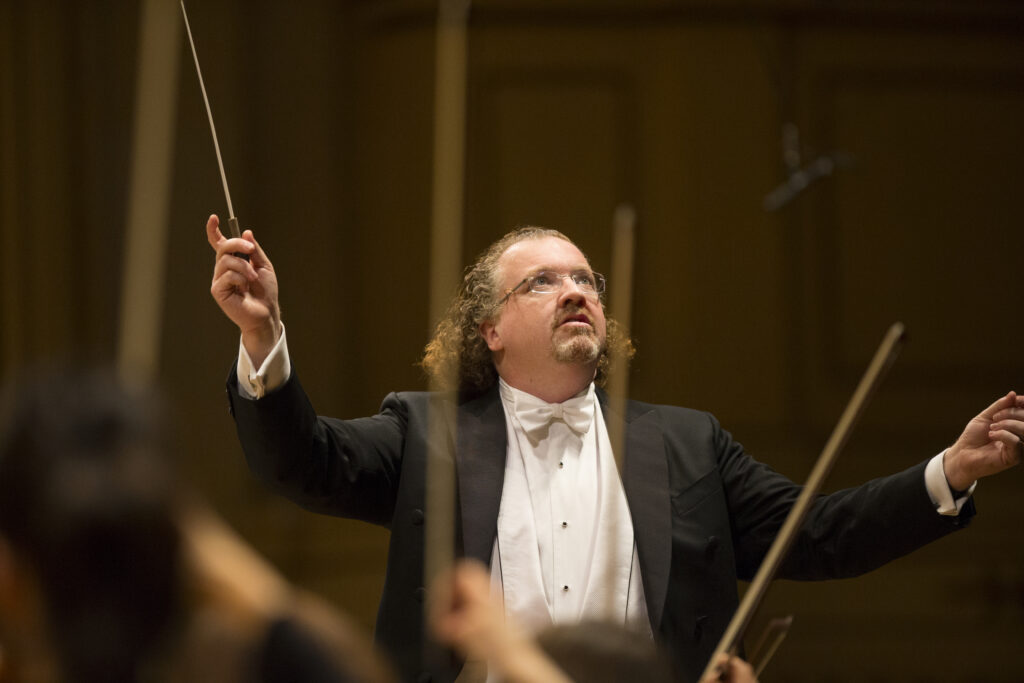THE ST. LOUIS SYMPHONY ORCHESTRA AND IN UNISON CHORUS CELEBRATE THE LEGACY OF FOUNDING IUC DIRECTOR DR. ROBERT RAY AT TRIBUTE CONCERT, MAY 1, AT POWELL HALL
The IN UNISON Chorus and SLSO musicians will be joined by ensembles connected to Ray, including IN UNISON Chorus alumni, The Legend Singers, the UMSL Community Choir, and the choirs of Manchester United Methodist Church and Webster Groves Presbyterian Church, led by IN UNISON Chorus Director Kevin McBeth and guest conductor Dr. Brandon Boyd
This community concert is free, tickets are required
The St. Louis Symphony Orchestra and its IN UNISON Chorus will pay tribute to the life and legacy of Dr. Robert Ray in a free community concert at Powell Hall on Monday, May 1, 2023. Ray was the founding director of the IN UNISON Chorus, a resident SLSO chorus that specializes in the performance and preservation of music from the African diaspora. He passed away in December 2022 at age 76.
The concert celebrates Ray’s many contributions to the country’s arts and music landscape, featuring the IN UNISON Chorus, SLSO musicians, vocalists Denise Thimes and Jermaine Smith, and singers from ensembles impacted by Ray’s signature musicianship, led by current chorus director Kevin McBeth and guest conductor Dr. Brandon Boyd.
The concert is Monday, May 1, at 7:30pm. Free tickets can be reserved by visiting slso.org.
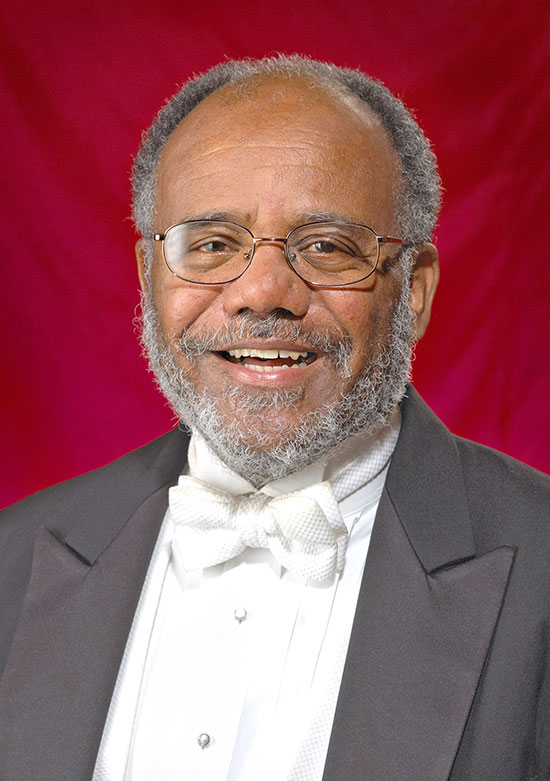
Marie-Hélène Bernard, President and CEO of the St. Louis Symphony Orchestra, said, “Dr. Robert Ray was a trailblazer—a brilliant musician and educator with a heart for the St. Louis community. His formation and leadership of the IN UNISON Chorus, and his devotion to its evolution as an essential choral group in the region, is one of countless legacies he leaves. We are honored to pay tribute to his legacy with the IN UNISON Chorus and Director Kevin McBeth.”
With unwavering dedication, Ray led the ensemble from its formation in 1994 through 2010, shaping its distinct sound and deep artistic profile. In addition to his wholehearted leadership of the IN UNISON Chorus for 16 years, Ray was a gifted composer and teacher, guiding many young musicians into their careers as a professor first at the University of Illinois, and most recently at the University of Missouri–St. Louis. His music filled many spaces, from local churches all the way to Carnegie Hall. Many of his compositions blended elements of music from the African diaspora with traditional classical forms, resulting in pieces with a singular voice. The SLSO and IN UNISON Chorus have performed selections from Ray’s Gospel Mass many times since its SLSO premiere in December 1996.
The free community concert highlights Ray’s career as a composer, director, and educator. More than 200 singers from various ensembles impacted by Ray will collaborate on the concert, including the IN UNISON Chorus and IUC alumni, The Legend Singers, the UMSL Community Choir, and the choirs of Manchester United Methodist Church and Webster Groves Presbyterian Church. Current IN UNISON Chorus Director Kevin McBeth will lead the concert alongside Dr. Brandon Boyd, a protégé of Ray’s and the Assistant Director of Choral Activities and Assistant Professor of Choral Music Education at the University of Missouri. Boyd’s I’ll Fly Away and Sign Me Up will be performed. The concert includes music by John Rutter, whose music Ray championed during his career. The performance includes selections from Ray’s own Gospel Mass—a landmark work that has been performed in Carnegie Hall—with well-known local vocalists Denise Thimes and Jermaine Smith, as well as Ray’s He Never Failed Me Yet. Throughout the concert, family, friends, and past and present IN UNISON Chorus members will remember Ray through song, poetry, and spoken word.
John RUTTER Selections from Suite Antique
Brandon BOYD I’ll Fly Away
Evelyn SIMPSON-CURENTON O Glory
Jeffrey AMES In Remembrance
Isaac CATES It’s Working
Brandon BOYD Sign Me Up
Robert RAY Selections from Gospel Mass
Robert RAY He Never Failed Me Yet
About the St. Louis Symphony Orchestra
Celebrated as a leading American orchestra, the St. Louis Symphony Orchestra is the second-oldest orchestra in the country, marking its 143rd year with the 2022/2023 season and its fourth with Music Director Stéphane Denève. The SLSO maintains its commitment to artistic excellence, educational impact, and community collaborations, honoring its mission of enriching lives through the power of music.
The SLSO serves as a convener of individuals, creators, and ideas, and is committed to building community through compelling and inclusive musical experiences. As it continues its longstanding focus on equity, diversity, inclusion, and access, the SLSO embraces its strengths as a responsive, nimble organization, while investing in partnerships locally and elevating its presence globally. For more information, visit slso.org.
About the St. Louis Symphony IN UNISON Chorus
The St. Louis Symphony IN UNISON Chorus is an auditioned ensemble of 100+ volunteer singers that performs a variety of musical styles, with a focus on the interpretation, performance, and preservation of music from the African diaspora.
Founded in 1994 by Dr. Robert Ray as an extension of the SLSO’s IN UNISON community outreach initiative, the IN UNISON Chorus performs several times each year with the St. Louis Symphony Orchestra and throughout the community. Chorus members often come from IN UNISON Program partner churches. Many chorus members sing in other vocal ensembles or church choirs. All share a love of music and of singing.
Bayer Fund has supported the Chorus since its inception. The Chorus has been led by Kevin McBeth since 2011. Learn more about the IN UNISON Chorus at slso.org.
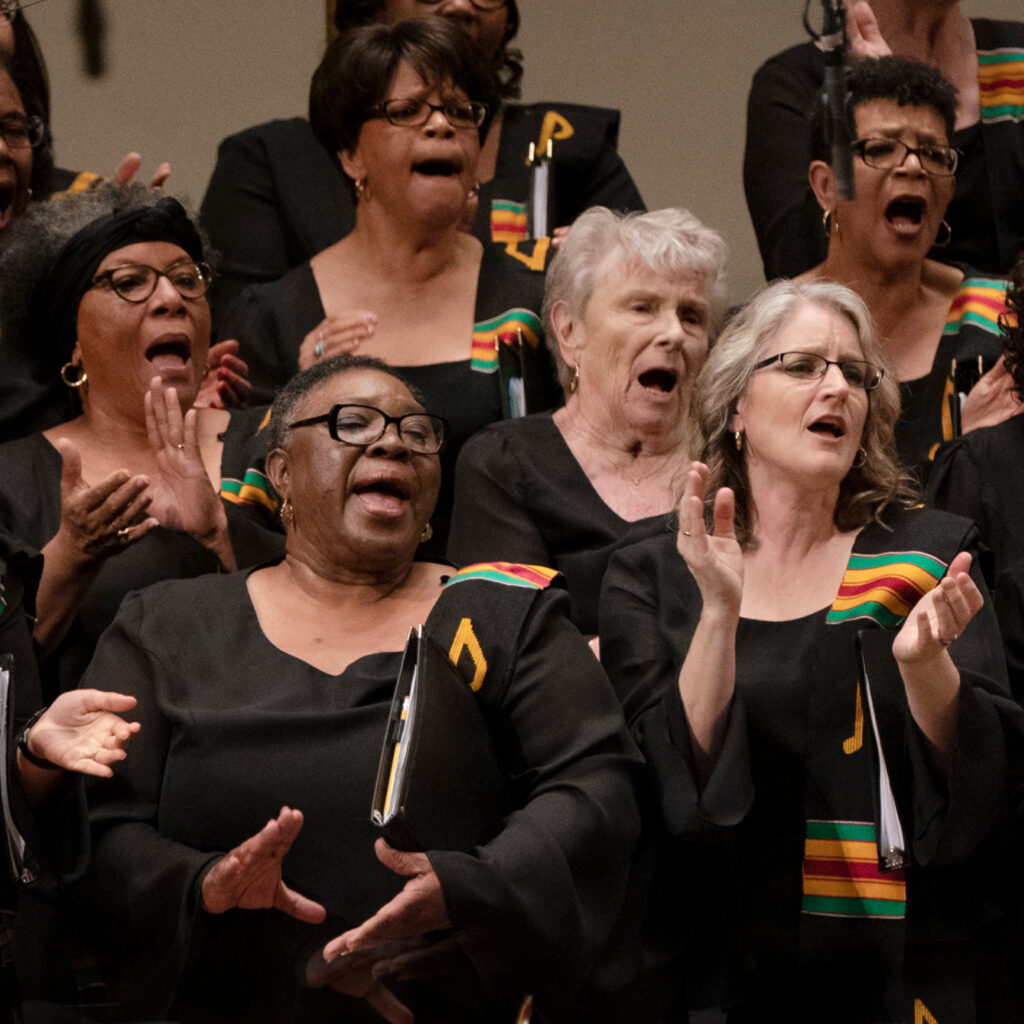

Lynn (Zipfel) Venhaus has had a continuous byline in St. Louis metro region publications since 1978. She writes features and news for Belleville News-Democrat and contributes to St. Louis magazine and other publications.
She is a Rotten Tomatoes-approved film critic, currently reviews films for Webster-Kirkwood Times and KTRS Radio, covers entertainment for PopLifeSTL.com and co-hosts podcast PopLifeSTL.com…Presents.
She is a member of Critics Choice Association, where she serves on the women’s and marketing committees; Alliance of Women Film Journalists; and on the board of the St. Louis Film Critics Association. She is a founding and board member of the St. Louis Theater Circle.
She is retired from teaching journalism/media as an adjunct college instructor.

